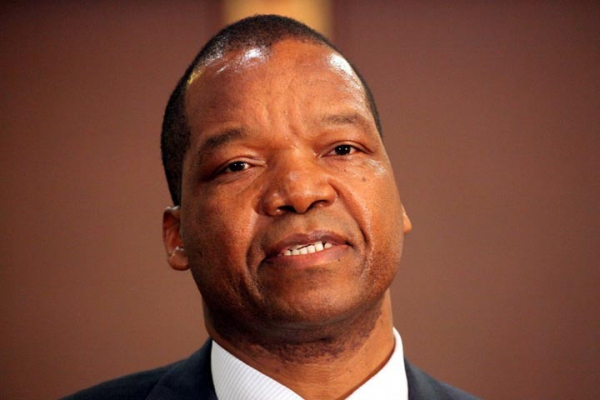
FIDELITY MHLANGA RESERVE Bank of Zimbabwe (RBZ) governor John Mangudya has defended the central bank’s long-standing relationship with the African Export-Import Bank (Afreximbank), raving on its continued support at a time when the country is being snubbed by major international financial institutions over its debt overhang.

Zimbabwe is currently failing to access funding from foreign lenders like the International Monetary Fund (IMF) and World Bank (WB) due to arrears accrued over the years.
The country’s public debt currently stands at US$14 billion.
“The Afreximbank remains an important lender to Zimbabwe and has assisted the country with access to foreign finance at a time when most international financial institutions (IFIs) are not lending to the country,” Mangudya said in a wide-ranging interview with the Zimbabwe Independent.
“The pricing of the facilities from Afreximbank at interest rates of 6,5% to 7,5% is reasonable compared to some facilities from IFIs, which are above 9% since 1998/1999 with no reprieve on interest charges since then.”
Afreximbank’s loans to Zimbabwe have been a subject of controversy.
When the RBZ introduced bond notes, a fiat currency in 2016 to alleviate the low levels of liquidity in the economy, Mangudya said it was backed by a US$200 million Afrieximbank facility.
In December 2020, the High Court of Zimbabwe ordered Finance and Economic Development minister Mthuli Ncube to publish details of all the loans and guarantees incurred by the government from January 2017 to December 1, 2020, with Afreximbank and other international financiers.
- Chamisa under fire over US$120K donation
- Mavhunga puts DeMbare into Chibuku quarterfinals
- Pension funds bet on Cabora Bassa oilfields
- Councils defy govt fire tender directive
Keep Reading

The published deals revealed that during the period, the government had borrowed more than US$2 billion from Afreximbank.
Afreximbank was granted land in Harare by the government to build a landmark centre for facilitating intra-African trade.
Among other Afreximbank Africa Trade Centres (AATC) on the continent, the Harare AATC will house Afreximbank’s permanent regional office, a World-class hotel, a trade information centre, and a major conference centre and a tech incubation lab.
During a ceremony last year to hand over land on which Afreximbank will construct its US$100 million southern African regional headquarters in Harare, Mangudya said the lender had extended US$9 billion in bailouts to Harare in the past 25 years.
But Afreximbank president Benedict Okey Oramah immediately said the financial institution, one of the only few still extending loans to Zimbabwe, had injected US$13 billion into the southern African nation’s economy.

Afreximbank announced recently that it is setting up a US$4 billion trade finance programme to cushion economies and businesses on the continent against shocks arising from the war in Ukraine.
Afreximbank Group’s total assets grew by 13,4% from US$19,3 billion as at December 31, 2020, to about US$22 billion as at December 31, 2021, primarily due to the 11,5% growth in net loans and advances and a 12,1% increase in cash and cash equivalents to US$18,2 billion and US$3,1 billion respectively.
Mangudya said the SDR677,4 million (US$967 million) allocated to Zimbabwe by the International Monetary Fund (IMF) in August 2021 as part of the US$650 billion SDRs allocated to IMF members to boost global liquidity in the advent of the Covid-19 pandemic, will be used to improve health and infrastructure.
“Accessibility of the SDRs is quite straightforward. It entails forwarding a drawdown request to the fund for its processing and disbursement through normal banking channels,” he said.
“As highlighted by the Minister of Finance and Economic Development in the 2022 National Budget Statement, the funds will be utilised in supporting projects in the social sectors namely health, education, and the vulnerable groups; productive sector value chains; infrastructure investment and shoring up foreign currency reserves.”
Mangudya also implored banks to do due diligence on clients to plug loopholes on the foreign currency auction system.
“We are aware that Zimbabweans are innovative people in attempting to find loopholes for arbitrage. However, if the transactions are done in the formal banking sector, the opportunities for arbitrage and round-tripping would be minimal,” the RBZ chief said.
“In order to prevent the abuse of the system, banks will be implored to play their part by conducting robust Know Your Customer (KYC) and Customer Due Diligence (CDD) principles. The bigger picture of the recently introduced measure is that it aims to provide a guide to market discovery and is also envisaged to go a long way enhancing confidence in foreign exchange market and in reducing illegal trading of foreign currency by economic agents. Market discipline is essential in any economy,” Mangudya added.











